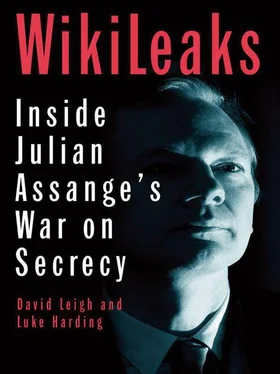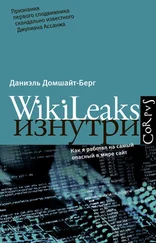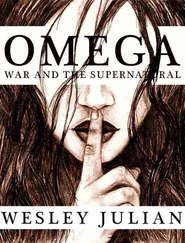Harding, Luke - WikiLeaks - Inside Julian Assange's War on Secrecy
Здесь есть возможность читать онлайн «Harding, Luke - WikiLeaks - Inside Julian Assange's War on Secrecy» весь текст электронной книги совершенно бесплатно (целиком полную версию без сокращений). В некоторых случаях можно слушать аудио, скачать через торрент в формате fb2 и присутствует краткое содержание. Жанр: Старинная литература, на английском языке. Описание произведения, (предисловие) а так же отзывы посетителей доступны на портале библиотеки ЛибКат.
- Название:WikiLeaks: Inside Julian Assange's War on Secrecy
- Автор:
- Жанр:
- Год:неизвестен
- ISBN:нет данных
- Рейтинг книги:3 / 5. Голосов: 1
-
Избранное:Добавить в избранное
- Отзывы:
-
Ваша оценка:
- 60
- 1
- 2
- 3
- 4
- 5
WikiLeaks: Inside Julian Assange's War on Secrecy: краткое содержание, описание и аннотация
Предлагаем к чтению аннотацию, описание, краткое содержание или предисловие (зависит от того, что написал сам автор книги «WikiLeaks: Inside Julian Assange's War on Secrecy»). Если вы не нашли необходимую информацию о книге — напишите в комментариях, мы постараемся отыскать её.
WikiLeaks: Inside Julian Assange's War on Secrecy — читать онлайн бесплатно полную книгу (весь текст) целиком
Ниже представлен текст книги, разбитый по страницам. Система сохранения места последней прочитанной страницы, позволяет с удобством читать онлайн бесплатно книгу «WikiLeaks: Inside Julian Assange's War on Secrecy», без необходимости каждый раз заново искать на чём Вы остановились. Поставьте закладку, и сможете в любой момент перейти на страницу, на которой закончили чтение.
Интервал:
Закладка:
With another court hearing scheduled for the new year, Assange was still seething at the bad publicity when he met the two Guardian journalists, and smouldering at what he characterised as a plot to bring him down. There had been a leak from the Swedish prosecutor’s report, containing witness statements about his encounters with both women. The dossier did not support the idea of a “CIA honeytrap”. The Guardian ’s Nick Davies had published an article in December itemising those details – to Assange’s complaints, and the chagrin of his celebrity supporters.
John Humphrys, the veteran anchorman of BBC Radio 4’s agenda-setting Today programme, followed up by demanding to know whether he was a “sexual predator”.
Assange replied: “Of course not.”
Humphrys sought to probe further: “How many women have you slept with?”
Assange, somewhat cornered: “A gentleman doesn’t count!”
He described this encounter with Humphreys as “awful” – it was further proof of his black-and-white insistence that there were only two kinds of journalist out there – the “honest” and the “dishonest”.
Ominously perhaps for the long-term future of Assange’s brainchild, it also looked as though there was a danger WikiLeaks could lose its cyber-leaking monopoly, thanks to the emergence of a crowd of imitators. Over in Germany, in December 2010, the former WikiLeaks No 2 Daniel Domscheit-Berg unveiled OpenLeaks, a rival platform. Domscheit-Berg had fallen out with Assange, accusing him of imperious behaviour. Assange’s personal control of the organisation had additionally created technical “bottlenecks”, he argued, with data not properly analysed or released. At a presentation in Berlin in December, Domscheit-Berg promised OpenLeaks would be more transparent and democratic.
He offered to work systematically alongside mainstream media, with a relatively modest and logical goal for his own “transparency organisation”. He said that OpenLeaks.org could confine its technical activities to “cleaning” leaks so that they could be submitted safely and anonymously online. That specialised task performed, the leaks would be turned over to newspapers and broadcasters, who would then do what the traditional media was good at, bringing resources, analysis and context. Finally, there was publication. Domscheit-Berg argued it was realistic that the mainstream media should generally be allowed to publish leaked material first, in return for the time and effort spent in editing it.
The breakaway organisation was described by one technology website as “hoping to do what WikiLeaks is trying to do but without the drama”. If Domscheit-Berg, or indeed other imitators, could develop workable clones of WikiLeaks, then there was little doubt that many other mainstream editors would be attracted to them.
Meanwhile, for all its high profile, WikiLeaks lacked a coherent organisation. One of his most stalwart helpers, Kristinn Hrafnsson, went back to Iceland for Christmas. Team Assange was only slowly moving from its origins as a rather chaotic insurgency towards a more structured organisation. Beseeched by his friends to enlist professional aides, Assange invited London PR professional Mark Borkowski to prepare him a public relations plan. After a day spent at Ellingham Hall, however, the elaborate Borkowski deal failed to materialise. Assange compromised by attempting to get in his own spokesmen to deal with the torrent of media demands. In January he advertised for some novel vacancies: “Four graduates wanted to staff newly established WikiLeaks press office. Appropriate remuneration. Successful candidates will be disciplined, articulate, quick-witted, capable of multi-tasking and accustomed to lack of sleep. Ability to start immediately is essential.”
Assange thus faced a formidable list of challenges as he sat around the Christmas Day lunch table with Vaughan Smith and his family – though you might not have guessed it from his decision to sport a Santa suit and play up to the camera lens for a gossipy Newsweek photo-shoot. But the man who had caused such a worldwide commotion had not lost his strengths.
He promptly succeeded in obtaining a contract to write his memoirs for more than a million pounds ($1.6m). This deal, brokered by literary agent Caroline Michel with Knopf in the US and Canongate in the UK, plus several foreign publishers, assuaged some of his money worries. “I don’t want to write this book but I have to,” he explained. He was liable to get more than £ 250,000 immediately in advances, although a six-figure chunk would have to be set aside to hire a ghostwriter. Michel’s agency also set up a meeting with Paul Greengrass, acclaimed director of The Bourne Ultimatum , with a view to him turning Assange’s life-story into a secret-agent escapade. The book, WikiLeaks Versus the World: My Story , was scheduled for release in April 2011 – an ambitious deadline.
Another piece of good news was the diminishing prospect that Assange would personally become the victim of some kind of vengeful US drone-strike. The US department of justice had issued secret subpoenas on 14 December for the Twitter accounts of Manning, Assange and his friends. This led to unwelcome publicity when Twitter robustly went to court and got the subpoena unsealed. Icelandic MP and WikiLeaks supporter Birgitta Jónsdóttir made a political fuss. “It sort of feels to me as if they’ve become quite desperate,” Jónsdóttir said. The investigation was fruitless, she added, since “none of us would ever use Twitter messaging to say anything sensitive”. If the US was reduced to chasing tweets, their legal pursuit appeared to have become slightly less menacing.
Contrary to the bloodcurdling claims made in public about the crimes of WikiLeaks, senior state department officials in fact appeared to have concluded by mid-January that the WikiLeaks controversy had caused little real and lasting damage to American diplomacy. The Reuters news agency reported on 19 January 2011 that in private briefings to Congress top US diplomats admitted the fall-out from the release of thousands of private diplomatic cables across the globe had not been especially bad. One congressional official briefed on the reviews told Reuters that the administration felt compelled to say publicly that the revelations had seriously damaged American interests in order to bolster legal efforts to shut down the WikiLeaks website and bring charges against the leakers. “I think they want to present the toughest front they can muster,” the officials said.
The tacit retraction of Hillary Clinton’s lurid claim that the release of the WikiLeaks cables had been an attack on the entire international community followed the equally low-key admission that Assange did not in fact have “blood on his hands” from the release of the earlier Iraq and Afghan war logs.
But the publicity – and the controversy – had achieved something very valuable for him. WikiLeaks had, as a result of the rows, become a stupendous global brand. Writing in the New York Times , Evgeny Morozov, the cyber-analyst from Stanford University, saw a wonderful possible future. He argued that WikiLeaks could have two major advantages over any of its imitators: a widely and easily recognisable brand and an extensive network of contacts in the media. Following several years in “relative obscurity” it had now become the “media’s darling”. He envisaged that WikiLeaks could “morph into a gigantic media intermediary”, as a journalistic clearing-house: “Under this model, WikiLeaks staffers would act as idea salesmen relying on one very impressive digital Rolodex.”
Ian Katz, the Guardian ’s deputy editor, put the position trenchantly at a debate organised by the Frontline Club in mid-January. “I think Julian has used his profile very cleverly and what he is doing is trying to make himself the brand, if you like, that is synonymous with whistleblowing … He wants you to think if you are a pissed off analyst in [the military] or wherever and you have got something you want to share with the world, ‘I will send it to that Assange fellow, not to the Guardian .’ Which poses a really interesting question for traditional media partners like us – have we helped to create, as it were, a brand which people will go to in place of traditional media?”
Читать дальшеИнтервал:
Закладка:
Похожие книги на «WikiLeaks: Inside Julian Assange's War on Secrecy»
Представляем Вашему вниманию похожие книги на «WikiLeaks: Inside Julian Assange's War on Secrecy» списком для выбора. Мы отобрали схожую по названию и смыслу литературу в надежде предоставить читателям больше вариантов отыскать новые, интересные, ещё непрочитанные произведения.
Обсуждение, отзывы о книге «WikiLeaks: Inside Julian Assange's War on Secrecy» и просто собственные мнения читателей. Оставьте ваши комментарии, напишите, что Вы думаете о произведении, его смысле или главных героях. Укажите что конкретно понравилось, а что нет, и почему Вы так считаете.












